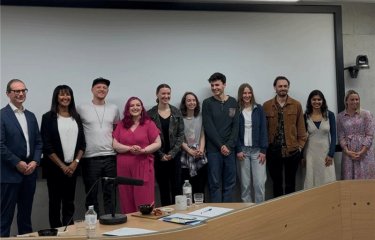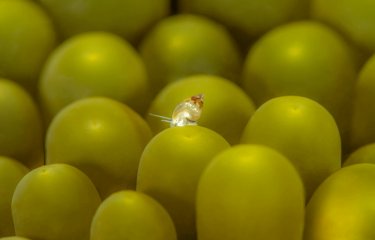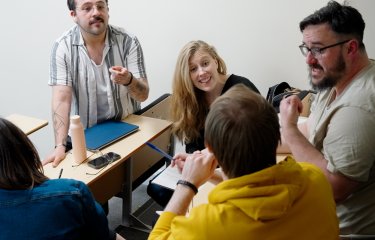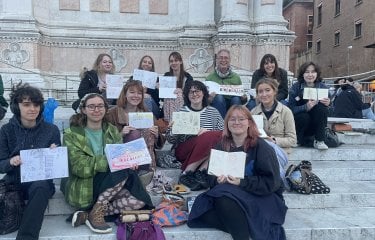Cultural Immersion: Malaysia 2023
26 October 2023
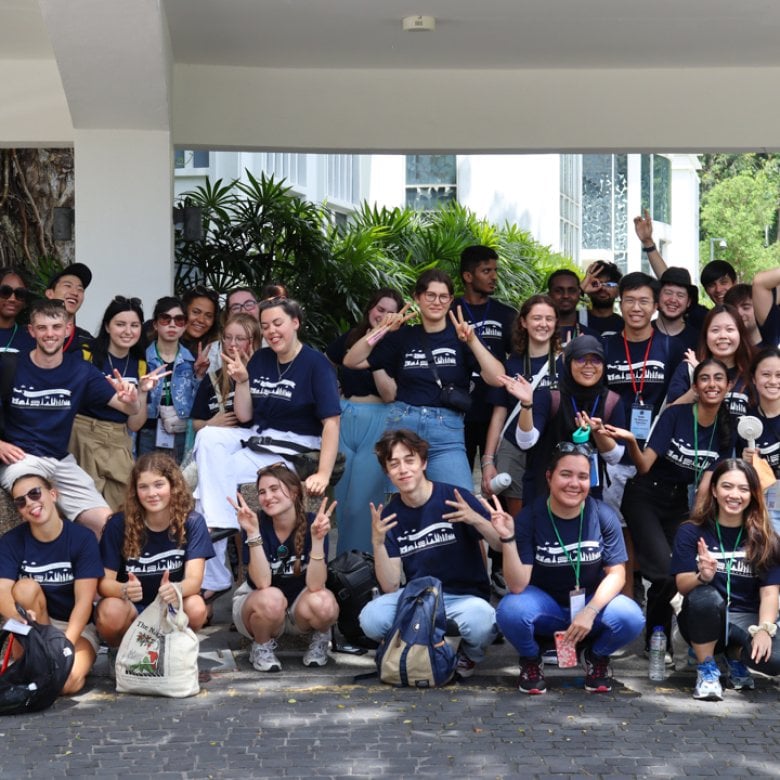
This story was written by Commercial Photography BA(Hons) lecturer, Laura Blight
The four-week cultural immersion programme in Malaysia engages both staff and students in a rich exploration of the country’s diverse culture. Students and staff learn about a wide range of subjects including Art, Politics, Languages, Religion, Economics, and Malaysia’s ‘national sport’ – food!
The Experience
Sunway University – based on the outskirts of Kuala Lumpur – hosted us; organising and planning the full programme of activities and excursions including a homestay weekend with local families and an English School camp: teaching English to young children at a rural school on the outskirts of Kuala Lumpur. The Cultural Immersion programme also partners with students from Lancaster University and Birmingham Universities, along with students studying at Sunway who volunteer their time to act as ‘buddies’ on the programme, offering extra support for the UK students and leading some of the workshops and activities.
Although I had visited lots of other parts of Asia in the past, this was my first time visiting Malaysia.
As an academic teaching on BA Commercial Photography, I was able to foster my own connections with other students and academics at Sunway, and more specifically The School of Art. I also set up visits with artists and creative spaces outside of the programme, including Cloud Projects based in The Zhongshan Building; an arts and research hub in the city housing the largest design archive in Kuala Lumpur. At the end of the programme, I‘d even booked two weeks of annual leave which meant that I was able to explore other parts of Malaysia including Malacca, Penang, Langkawi and the Perhentian Islands.
Exploring the Culture of Malaysia
On a practical level, Malaysia is an incredibly hot and humid country, and we did experience the odd tropical storm here and there bringing some relief from the heat. It’s very affordable to eat and drink and easy to navigate around the city centre and other parts of Kuala Lumpur.
Malaysian cuisine reflects the multi-ethnic communities that make up its population, with many people from Malaysia, China and India. The remainder of the population consists of indigenous peoples including Sabah and Sarawak in East Malaysia, and as a result, the diversity and fusion of cuisine is extraordinary and a central element to the diverse culture of Malaysia. We got to experience some incredible street food during our time there, and also spent an afternoon with the culinary school to make our very own nasi lemak – a Malaysian staple.
The programme also explored sustainability within Malaysia, and more specifically at Sunway University. Malaysia is still a developing country and, in the UN Sustainable Development 2023 report Malaysia ranks 78/166 - the UK ranks 11/166. On campus, Sunway is home to the largest urban farm in Kuala Lumpur and builds decentralized farms across the city. Given Malaysia's religious diversity, the cultural immersion programme also included visits to religious sites including an Islamic Mosque and Hindu and Buddhist temples. This aspect aims to foster intercultural understanding and appreciation within Malaysian society, all coexisting together – often on the same street!
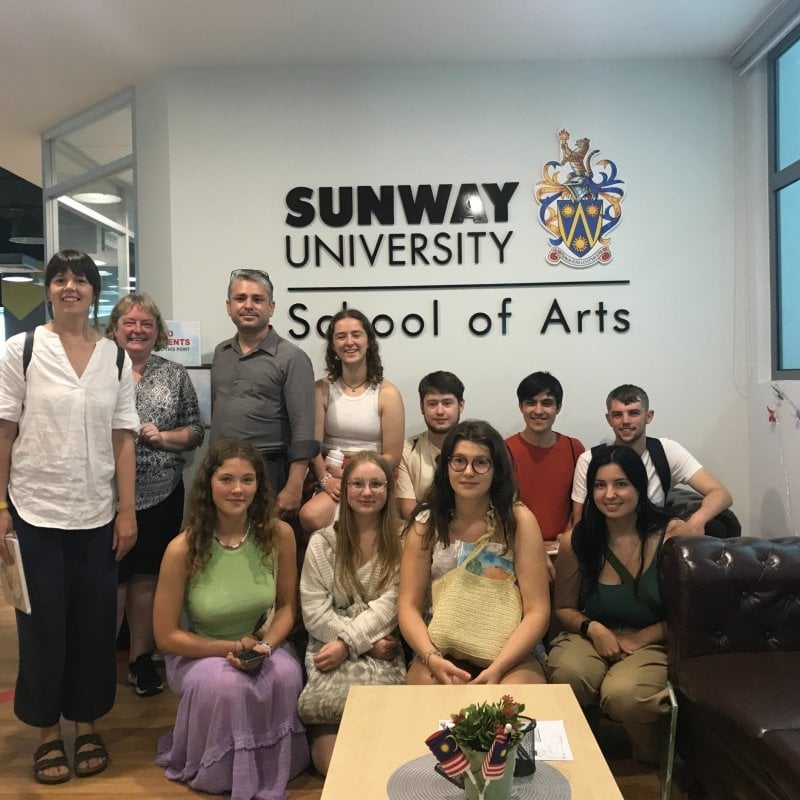
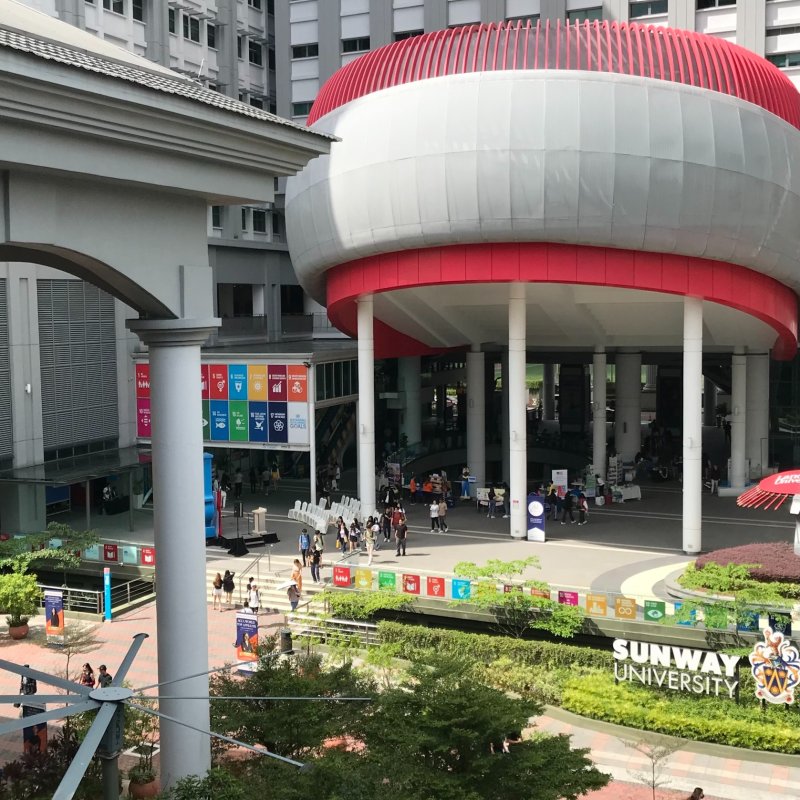
What it meant for our students
While celebrating Malaysia's rich cultural heritage, participants also confront the contemporary challenges the country faces. These challenges include economic disparities, environmental concerns, and the ongoing quest to support the LGBTQ community. Discussions and activities encourage participants to critically engage with these issues, considering the role of the creative arts in advocating for positive change. I am currently in discussion with some of this year’s participants to curate a small exhibition on campus – watch this space!
Students who participated in the programme are studying a range of creative disciplines at Falmouth, including BA Visual Effects & Post Production, BA Interior Design (online) and BA Architecture. The majority of funding comes from the Turing Scheme, but students will need to pay a small fee towards the programme and pay for their flights, travel insurance and any extra activities outside of the programme. Extra financial support may be available for those students coming from lower income families. The Go Abroad team are working with Sunway on the 2024 programme and more details will be revealed soon.
One thing we did learn this year is that we need to increase our pastoral support for students who are away from home. We’re aware that, for some, this may be the first time they’re travelling without their parents/guardians or may be the first time they’ve travelled outside the UK, and so there was an increase in requests for student mental health and wellbeing support. Falmouth and Sunway are looking into what extra support can be offered for students participating in the 2024 programme, to make sure everyone has the support they need.
